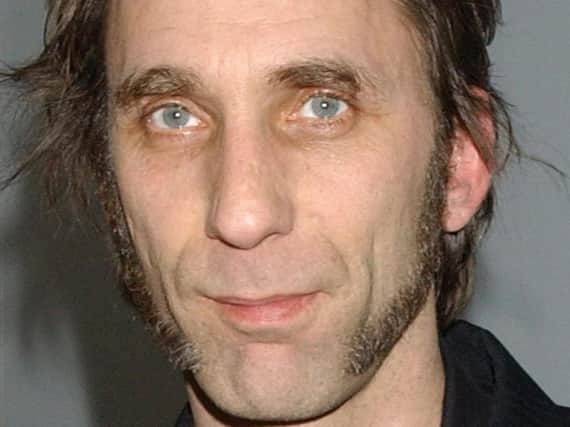Will Self records impressions of Derry for radio series assessing 'British identity at a time of rapid change'


In an impressionistic report of his trip, recently broadcast on BBC Radio 4, Mr. Self was perplexed divisions among young people persisted over the national question as we approach the 20th anniversary of the Good Friday Agreement.
During the programme the writer quizzed his local B&B landlady, a group of young people in the Nerve Centre, and former customs officer Gerry Temple, about identity politics, integrated education, Brexit and the border, among other topics.
Advertisement
Hide AdAdvertisement
Hide AdEqually, ‘Last Bus to the Border’, which was the final episode in a ten part series “assessing British identity at a time of rapid change” recorded Mr. Self recorded his own observations of the city and the North.
‘Will Self ‘s Great British Bus Journey series had been billed as “a 1,000-mile tour of the UK by bus and coach, exploring urban Britain and British identity at a time of flux”.
In Derry Mr. Self professed himself interested in finding out if the Brexit fall-out was re-opening old wounds, or, as he put it himself, how a “historically divided city is coping with new fissures”.
Throughout the episode, the journalist nailed his own colours to the mast by referring to Derry and its citizens as ‘British’, despite a notional multinational kingdom such as ‘Great Britain and Northern Ireland’ having no universally accepted demonym, especially in Ireland, where even unionists, for most of their history, regarded themselves as ‘Irish’ under ‘the Crown’.
Advertisement
Hide AdAdvertisement
Hide AdFrom the outset Mr. Self described Derry as “the most debatable of British cities. Even its name is debatable.”
Later, when walking on the Derry Walls, he remarked: “Very unusual for a British town. I can only think of a couple of others to actually be defined by its walls as Derry is.”
And again: “You come into Derry now and not only does it look like a prosperous north British city last night when we arrived, it looked like a very prosperous city.”
Reflecting the British view of the conflict in the North as a petty sectarian squabble, he put it to his landlady over breakfast: “You’ve lived through what was really a low intensity civil war for a long time, let’s call things what they are”.
Advertisement
Hide AdAdvertisement
Hide AdHis landlady, however, pointed to Derry’s reputation as a pioneering city when it came to building strong community relations.
“I think they’ve really got it together now, loyalists and republicans in Derry. They see eye to eye,” she told him.
The broadcaster seemed almost surprised when his Irish host declined to be labelled British.
Mr. Self asked her: “Okay, it’s over, we’ve had peace for a number of years. Could you say the ‘B’ word, could you ever say ‘I’m British?’”
Advertisement
Hide AdAdvertisement
Hide AdLandlady: “No, I’m not British, I’m Irish, I could never say I was British. Sorry, about that.”
Mr. Self: “So, as the French say, plus ça change, plus c’est la même chose. Everything’s changed and everything’s the same.”
In conversation with a group of young people in the Nerve Centre, Mr. Self found it depressing young unionists and nationalists still felt uneasy in some areas of the city .
He found it “awful” when a young unionist revealed: “I wouldn’t feel comfortable, walking through the Bogside and maybe you wouldn’t feel comfortable walking through the Fountain or Bond’s Street. I stick to unionist areas or the city centre where it’s neutral.”
Advertisement
Hide AdAdvertisement
Hide AdMr. Self lamented: “But what you are saying is this is effectively an apartheid society.”
In the course of the broadcast he advocated integrated education as a potential way of addressing the North’s seemingly intractable sectarianism, as did his friend Carlo Gébler who also featured in the programme.
The problem of the border was driven home by former customs man Gerry Temple when he got on the bus to Culmore, the last trip of his 1,000 mile journey
Standing on the frontier, Mr. Temple said: “There’s over 300 miles of border, and between here and where I live, which is about two miles away, there are about 16 crossings.”
Advertisement
Hide AdAdvertisement
Hide AdMr. Self marvelled: “A fretwork doesn’t even cover it. It’s a filigree, it’s so kind of delicate and complex.”
His overall impression of Derry was favourable.
“The controlled city of barriers and bollards seems empty and ordered...sleepless in the small hours I go for a stroll along the banks of the River Foyle. Derry/Londonderry is peaceful, beautiful and very, very old under a clear winter sky,” he commented.
Mr. Gébler, however, cautioned still waters could mask dangerous undercurrents.
“An enormous amount of money has been spent since the City of Culture, however, I can tell you that the dissidents have been quietly but indefatigably, continuously keeping at work,” he warned.